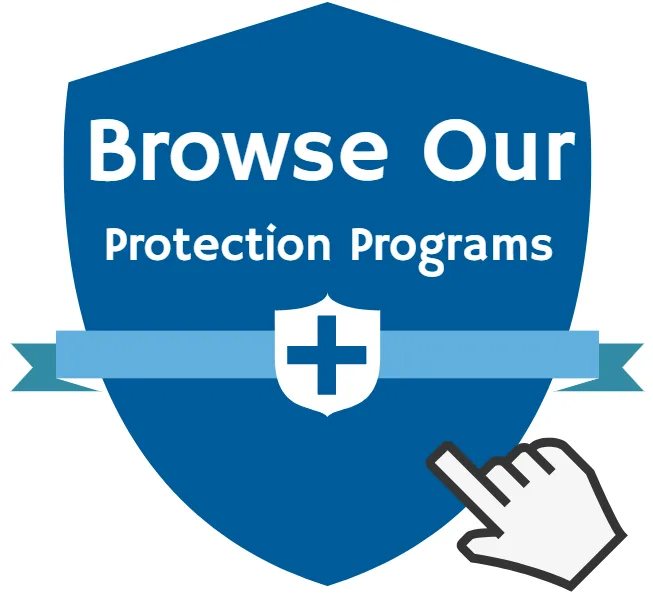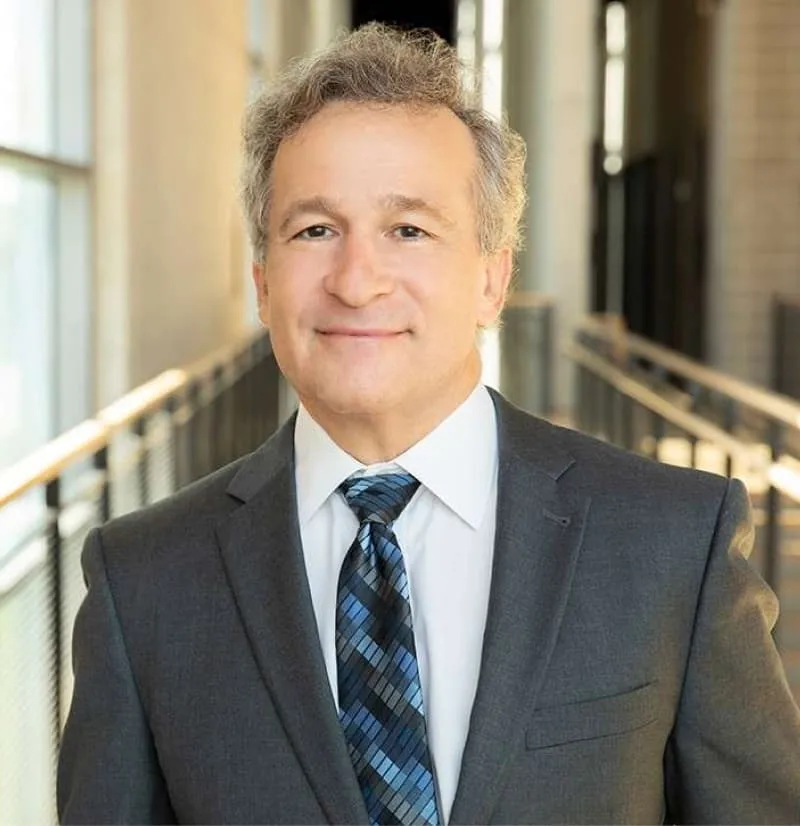Surgeons are typically afforded great latitude in choosing whether or not to operate on a patient. For example, Jehovah’s Witnesses generally eschew transfusion of blood products. If a Jehovah’s Witness needs a coronary artery bypass, you are not obligated to operate on this patient. You can, of course, send the patient to another surgeon who will accede to the restrictions. If you make the decision to cut, you must honor the patient’s religious request to avoid using blood products. But, if you’re not comfortable with the demand, you can Just Say No.
Further, you can generally refuse to operate on an elective patient because you don’t like him. If that is the real reason, and it’s not based on the fact the patient belongs to a particular protected class, such as race or religion, you’re typically on safe ground.
A plastic surgeon recently saw an overtly healthy patient who wanted an aesthetic procedure. She confessed she had chronic hepatitis C, but there were no obvious manifestations of liver disease. Her chronic condition was controlled. She just wanted to look better.
The surgeon agreed that a face lift would rejuvenate. One thing. He said he did not operate on patients with hepatitis C and would refer the patient to another surgeon who did.
Guess what happened next?
You are intuitive, indeed.
The patient called the office threatening to sue for discrimination.
Is this right? Do surgeons have an obligation to perform an elective surgery on a patient? Most of the time, the answer is no. But, in patients with some types of chronic infections, the answer may be yes.
Such a case was litigated to the US Supreme Court. In Bragdon v. Abbott, 524 U.S. 624 (1998), Sidney Abbott was HIV positive (but without AIDS) for eight years when she saw her dentist. She disclosed her HIV status on a patient intake form. Dr. Bragdon diagnosed a cavity; then explained his policy against filling cavities of HIV-infected patients in his office. He offered to perform the filling in the hospital. The dentist was not going to charge any additional fees for his work. Ms. Abbott would be responsible for any additional facility fees. The patient refused the offer and sued under the Americans with Disabilities Act (“ADA”).
The Supreme Court said that HIV positive status was a disability as understood by the ADA. But, that was not the end of the story. They also ruled that Dr. Bragdon could have legally refused to treat the patient if he reasonably believed, based on a credible scientific basis (even if that scientific basis differed from the prevailing medical consensus), that her infectious condition posed a direct threat to the health or safety of others. It was not enough that the dentist have a good faith belief that her condition posed a risk to others. It would have to be supported by scientific evidence. Bragdon was unable to supply this evidence.
By now, most doctors know that universal precautions are considered reasonably adequate to prevent transmission of diseases such as HIV and hepatitis. Further, most surgeons have safely operated on patients who were already infected – but the surgeon was not aware of this. Either the patient was ignorant of his/her serology status. Or the patient withheld this information.
Back to the plastic surgery patient. Based on Bragdon, a surgeon who refuses to operate on a patient solely because she is infected with hepatitis C would need to demonstrate that either (a) the procedure is unsafe for the patient; or (b) the scientific evidence suggests the risk for the surgeon or team is unreasonably high even with appropriate accommodations. Prong (b) would be an uphill struggle given the scientific evidence on disease transmission and CDC recommendations.
he was HIV positive. The ADA permits discrimination if based on objective criteria promoting safety. Such action is not “discrimination on the basis of mythology.” Mauro’s duties occasionally required him to place his hands within a surgical wound. He admitted sometimes his gloves tore, and rarely, a needle stuck him. The court determined that even if this occurred uncommonly, it “could have catastrophic results and near certainty of death [for the patient].” I believe this ruling emerged prior to triple therapy for HIV. The court ruled the hospital acted within its rights when it terminated Mauro because “he was a direct threat.”
What should this surgeon do? Hard to say. Might make sense to call the patient and explain that he had a chance to review the CDC’s recommendations and speak with an infectious disease expert. Based on what he learned, he is prepared to perform the procedure. Let’s get it scheduled. This phone call would likely sidestep a trip to the courtroom.
To be clear, the question is, do you, as a surgeon, have to risk your life (and your family’s lives) operating on patients? The answer, of course, is no. But, if you refuse treatment to a patient with a chronic, stable infection, your refusal will need to be grounded in a scientific appraisal of risk versus benefit.
Let us know what you think.






If I operate on someone & stick myself with a needle and ask for an HIV test on their blood, are they allowed to say “No”. If so, I may be a risk to my wife & family.
The surgeon still has the right to say no. Why can he not decline. Does not have to prove anything. If I ask a lawyer to defend me he can decline and refer me out!
Lewis…In general you CAN refuse to assume care of an elective patient. This assumes you do not have a pre-exiting relationship (which could trigger abandonment) – or other obligations such as managed care contracts, etc.
But…if you define the reason you are not going to treat a patient because of something that is considered a disability, you run the risk of triggering ADA discrimination liability. If you couched the refusal in these terms, you might be safer – eg: My policy with patients with hepatitis C is to perform bleeding time / PT/PTT. If those are normal, I’ll do the case. If they’re not, those will need to be normalized before I do an elective case. There, the overt reason for refusal is based on sound medical evidence.
Discrimination laws are broader than ADA. If you told a patient you will not operate on him because of his race (and no other reason), you’d have similar problems with allegations of discrimination and potential liability.
Charles:
Youn typically need the patient’s consent to test for HIV- either legally or ethically. Here’s what was written in Jl Watch HIV/AIDS Clinical care: July 27, 2009
Laws around HIV testing and consent are evolving. CDC guidelines published in 2006 recommended dropping the requirement for written consent, to destigmatize and facilitate such testing. Although state laws are increasingly coming into concordance with CDC recommendations, such laws differ widely from state to state (Ann Intern Med 2009; 150:263). Even in states that have adopted “opt-out” HIV testing policies and dropped the requirement for written consent, the situation remains extremely complicated and relatively untested against legal challenge: If the source patient is unwilling to be tested, there are no ethical options to get around the refusal.
http://aids-clinical-care.jwatch.org/cgi/content/full/2009/727/1
Without the patient’s consent, you could initiate recommendation vis a vis chemoprophylaxis.
I agree, it’s a challenge.
I had thought that surgeon could refuse to operate for an reason as long as this refusal did not constitute unlawful discrimination. Physicians are not obligated to treat patients who request care and physicians do not need to provide a reason for terminating the dr-pt relationship, as long as there is not abandonment. Where is my reasoning astray with regard to surgeon and Hep C?
Michael:
Youa re right – as long as refusal is not related to unlawful discrimination, you can generally refuse elective treatment. The question is whether chronic hepatitis C is considered a disability under the ADA. If so, then were there objective reasons which made risk / benefit ratio of treatment unacceptable for either the patient or the doctor / staff.
The US Supreme Court determined that HIV carrier status is to be cosidered a disability. It is reasonable to assume HCV would be treated the same.
But, the analysis does not stop there. The next question is whether it is safe for the HCV patient to have the surgery – and whether it is safe for the team to perform the surgery. IF the patient is medically healthy (normal bleeding parameters, LFTs, ability to metabolize anesthetics, etc), the it is reasonably safe to proceed. IF the type of surgery is such that risk of needlestick injury is low with appropriate universal precautions, then objectively, it is considered safe for the staff.
Hard to say definitely how a court would weigh-in on this. But, if HIV is an analagous to HCV (as I believe it is), a surgeon would be courting liability to issue a blanket refusal to operate on a healthy HCV patient -if the patient understands the reason to be solely or mainly because he had HCV.
Is not one of the operative considerations here that the procedure in question is cosmetic/elective. For a strictly cosmetic procedure with no medical benefit to the patient, it is hard for me to believe that the surgeon must risk his life. And maybe better to suffer the consequences whatever they are than risk his life??
The question is what is the quantitative risk of transmission of chronic hepatitis or HIV from single needle-stick in otherwise health patient. Of course the risk is not zero. But, if the risk were significant, wouldn’t we routinely be testing all of our surgical patients for HIV, HBV, and HCV. We don’t.
Now, if a strain of HCV virus evolved so that the rate of transmission was 100%, the legal analysis would also change.
To make this challenging issue even more interesting. What obligations does a surgeon infected with chronic stable viral hepatitis have? Avoid all surgery? Disclose to his patient? For HBV, see below….
From the CDC July 6, 2012:
Updated CDC Recommendations for the Management of Hepatitis B Virus–Infected Health-Care Providers and Students
These updated recommendations reaffirm the 1991 CDC recommendation that HBV infection alone should not disqualify infected persons from the practice or study of surgery, dentistry, medicine, or allied health fields. The previous recommendations have been updated to include the following changes: no prenotification of patients of a health-care provider’s or student’s HBV status; use of HBV DNA serum levels rather than hepatitis B e-antigen status to monitor infectivity; and, for those health-care professionals requiring oversight, specific suggestions for composition of expert review panels and threshold value of serum HBV DNA considered “safe” for practice (<1,000 IU/ml). These recommendations also explicitly address the issue of medical and dental students who are discovered to have chronic HBV infection. For most chronically HBV-infected providers and students who conform to current standards for infection control, HBV infection status alone does not require any curtailing of their practices or supervised learning experiences. These updated recommendations outline the criteria for safe clinical practice of HBV-infected providers and students that can be used by the appropriate occupational or student health authorities to develop their own institutional policies. These recommendations also can be used by an institutional expert panel that monitors providers who perform exposure-prone procedures.
Whether or not the physician has a legal obligation to operate on a Hep C patient doesn’t seem so much the issue here as the ignorance of the scenario used. What physician would know so little about Hep C to be afraid to operate on a Hep C positive patient? This sounds like a hypothesis from an uniformed blogger. The chances of contracting Hep C from a patient in an operation are less than remote. There are many considerably higher risks of infection to a surgical team in other illnesses.
Sometimes, a case is just too difficult for me to do….. I refer; the patient has the right to accept or refuse.
This is, in fact, exactly what I do with smokers who are referred to me with unruptured aneurysms. My criterion for treating them is that they 1) stop smoking, 2) stay stopped for 4 weeks–and I check conitine levels since I don’t necessarily believe them, and 3) agree to stay stopped after I treat them. Why? Because I believe that their surgical risk for endovascular treatment is unacceptably high if they smoke. Has this been studied scientifically? Not that I’m aware.
But observe that at complications conferences, what seems to be ~ 80-90% of serious complications of aneurysm surgery (ruptured or unruptured, open or endovascular) are in smokers: vasospasm, thromboembolic complications, etc. If 50% of people with aneurysms were smokers, there would be only a 10x increase in complication rate due to smoking. But it seems to me that only ~10% of people in the US still smoke–if that many. So now we have a situation with 1/10th of the population representing 90% of the complications. So now it’s somewhere between a 50x and 100x risk multiplier.
I just say no. A smoker could, I suppose, reasonably argue that I’m discriminating against them a la ADA–smoking addiction is maybe a disease–but I’m willing to present my case to a jury of 12 rather than explain to the same jury why I decided to accept them as a surgical patient with a known high risk for problems.
Just me, tho….
While I operate on both HIV and Hepatitis C positive patients, if they have medical clearance, it is dishonest to pretend there is no risk to the surgeon.
It is well known that surgeons under-report needle stick injuries – an American College of Surgeons survey suggested a figure of about one needle stick per surgeon per week (i.e. about one stick per 25 hours of surgery, since surgeons operate about half of their work week) Equally, the risk of viral transmission from a needle stick injury from a patient with a significant viral load in their blood is around 1:400.
Taking these two figures, the speculative risk to the surgeon from a lengthy cosmetic procedure (6 hours would not be unusual for multiple cosmetic procedures) on a virus positive patient is at least 1:2,000 – not insignificant for potentially fatal conditions.
“bobfaroo” may think 1:2,000 is “less than remote”, however busy surgeons know that the only surgeons who don’t have complications are the ones who don’t operate, and likewise the only surgeons in most specialties who don’t have needle stick injuries are those who don’t operate.
Nevertheless the legal profession will always be happy to force medical professionals to take risks that they themselves would never assume.
To Joe:
While the specific risk of smoking on a particular type of endovascular case may never have been studied, smoking is established as a post-surgical risk factor. Further, if the patient wanted to assert some type of liability claim, he would have to demonstrate that objective evidence demonstrates the quantitative risk of smoking is negligible. I cannot believe he would prevail on a discrimination claim.
In 2001, a Maryland Court refused to grant disability status to a smoker.
Brashear v. Simms determined that neither smoking nor nicotine addiction qualified as an ADA-covered disability because “both smoking and ‘nicotine addiction’ are readily remediable, either by quitting smoking outright through an act of willpower (albeit easier for some than others), or by the use of such items as nicotine patches or nicotine chewing gum.” This case relied on a prior US Supreme Court case, Sutton v. United Airline, which held that an impairment is not a disability within the meaning of the ADA, if it could be mitigated by corrective measures.
That said, in 2008, the ADA was amended (ADAAA) to explicitly nullify the Supreme Court’s Sutton decision that an impairment must be considered in “its mitigated state.” Sutton had previously concluded that if an impairment could be mitigated, it was not an impairment. Sutton were twins who needed glasses. They argued they were not hired as pilots because their uncorrected visual acuity was not better than 20/100. (Their vision did correct with glasses).
The ADAAA pre-emptively closes the door to suits related to an employer allowing a person to smoke at work. It explicitly allows employers to prohibit smoking at work.
In sum, vis a vis defending against a charge of ADA discrimination….the best argument not to operate electively on a smoker is the risk of complications may be high – and that this risk can be remedied by the smoker stopping smoking.
I just love the logic where if a surgeon could get infected (if he stuck himself with a needle or his glove tore while unknowingly having an open wound on his hand) that’s OK, but if a patient could get infected (from a surgeon or tech) that’s not.
I routinely refuse to perform spinal fusions on patients who smoke unless they are having progressive myelopathy.
There is ample evidence that the complications of non-union are substantially higher and that patient who stop smoking are motivated to participate in their care and are more satisfied with the result. If a patient’s fusion does not heal for sure it will never be the patient admitting it was because of smoking – it is always the surgeons fault!
Innumerable patients and families of patients have thanked me for finally forcing them to do what they knew they needed to do and wanted to do but needed adequate motivation to finally get done. Amazingly many patients do not return to smoking.
Medicine is not just patient choice – one cannot command one’s body to get well and rules of healthcare are rules. If you poison yourself you WILL suffer the consequences.
Some of my competitors will operate on smokers without even discussing the increased risks of continuing to smoke, now I think one could be liable in that situation…
HIV isn’t very infectious except in the first several months and of course once treated its hardly infectious. Hep c can have viral loads in the millions per cc blood. Insisting on treatment before surgery of course is a safe harbor. And with good rapport and courtesy and lack of arrogance the careful plastic surgeon can finesse these situations. Few patients want a surgeon who doesn’t want to operate on them even suggesting your hand might shake because you are nervous is probably true (if you say it its true) And enough to discourage patients. And the patients we have diagnosed with hep c have been intensely grateful to be referred for treatment. The key thing to remember is that you are in a human relationship, be flexible. When you start acting like you are a lawyer you are headed for idiocy.
There are bothersome data in presented cases – on one hand there appears to be ignorance from the side of the surgeons; on the other poorly regulated field of denying (surgical) care and lack of proper and substantive use of scientific data in a bipartisan manner. What is valid for the goose should be applicable to the gander. No pun intended.
Risk versus benefit in a cosmetic consideration is ALWAYS adverse.
How about if you simply decline to operate on the person?
No reason given, you just say no.
Don’t say I’m not going to operate because of HIV, or Hepatitis “C”, or whatever
Just say “I’m not going to operate” and leave it at that.
To anyone’s knowledge, has there been such a case? Has the surgeon ever been sued to provide a reason?
In my own practice, for example, I will from time to time, dismiss a patient from the practice. It’s for the usual reasons, drug-seeking, dontor-shopping, or similar behaviors.
But when I send the dismissal letters, I NEVER give a reason. Patients virtually never ask why (they know why, and I’m usually not the first to have sent a dismissal), and the VERY rare times a patient asks, I usually demur and they just go away.
I wonder if the surgeon’s mistake was giving a reason for not operating?